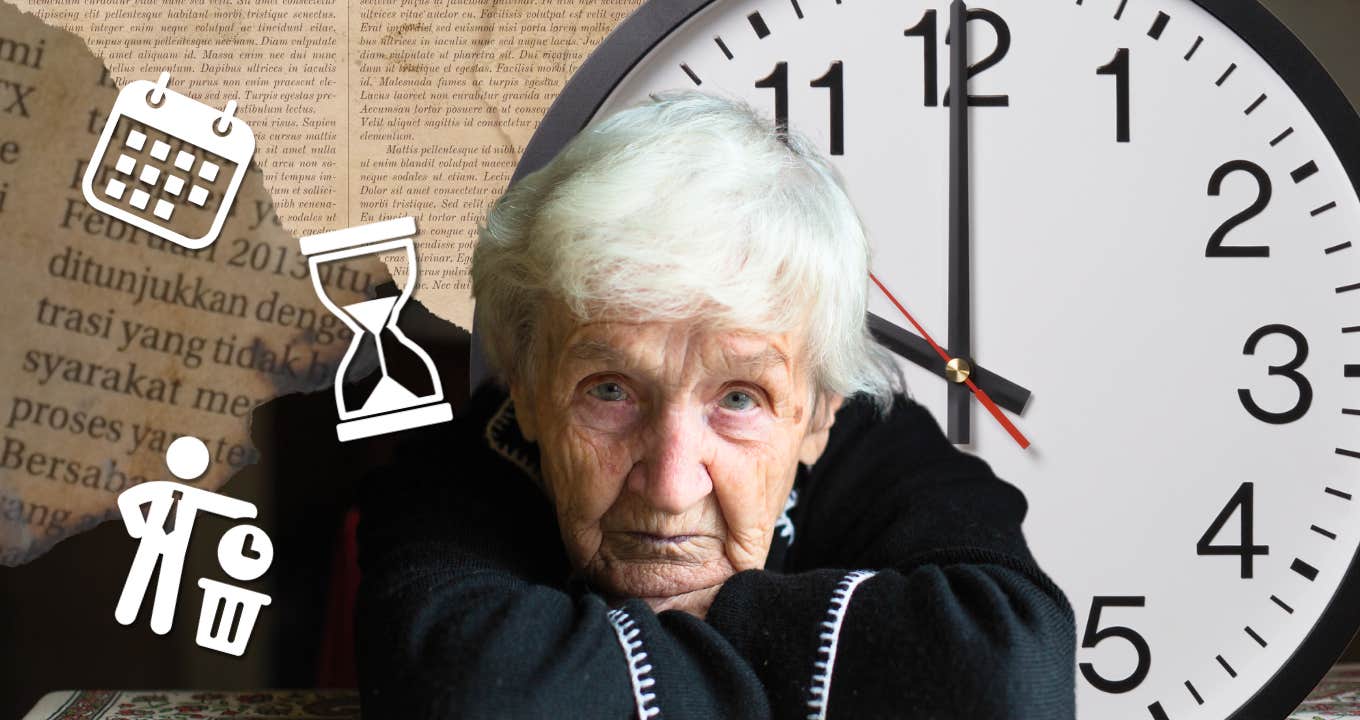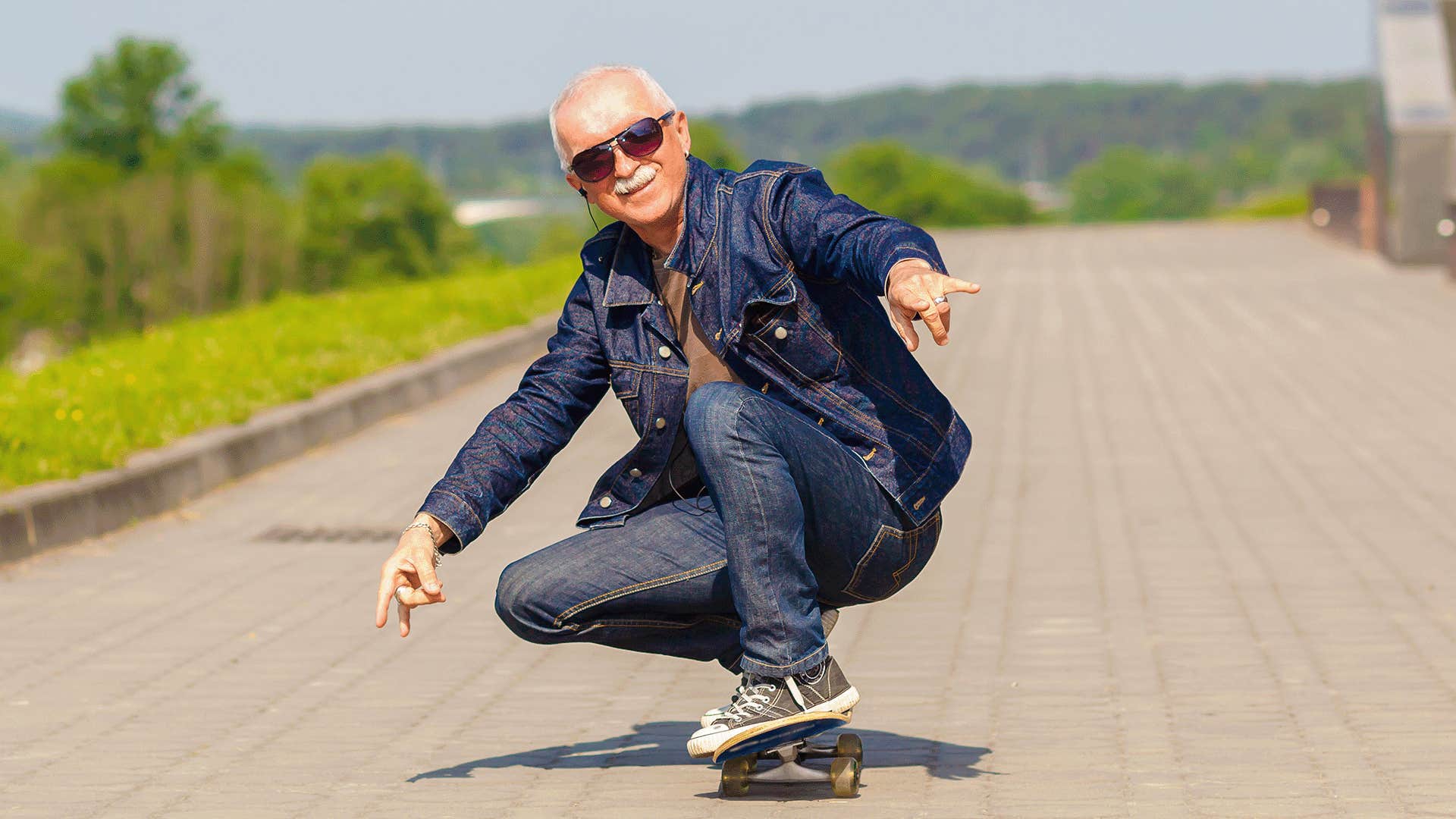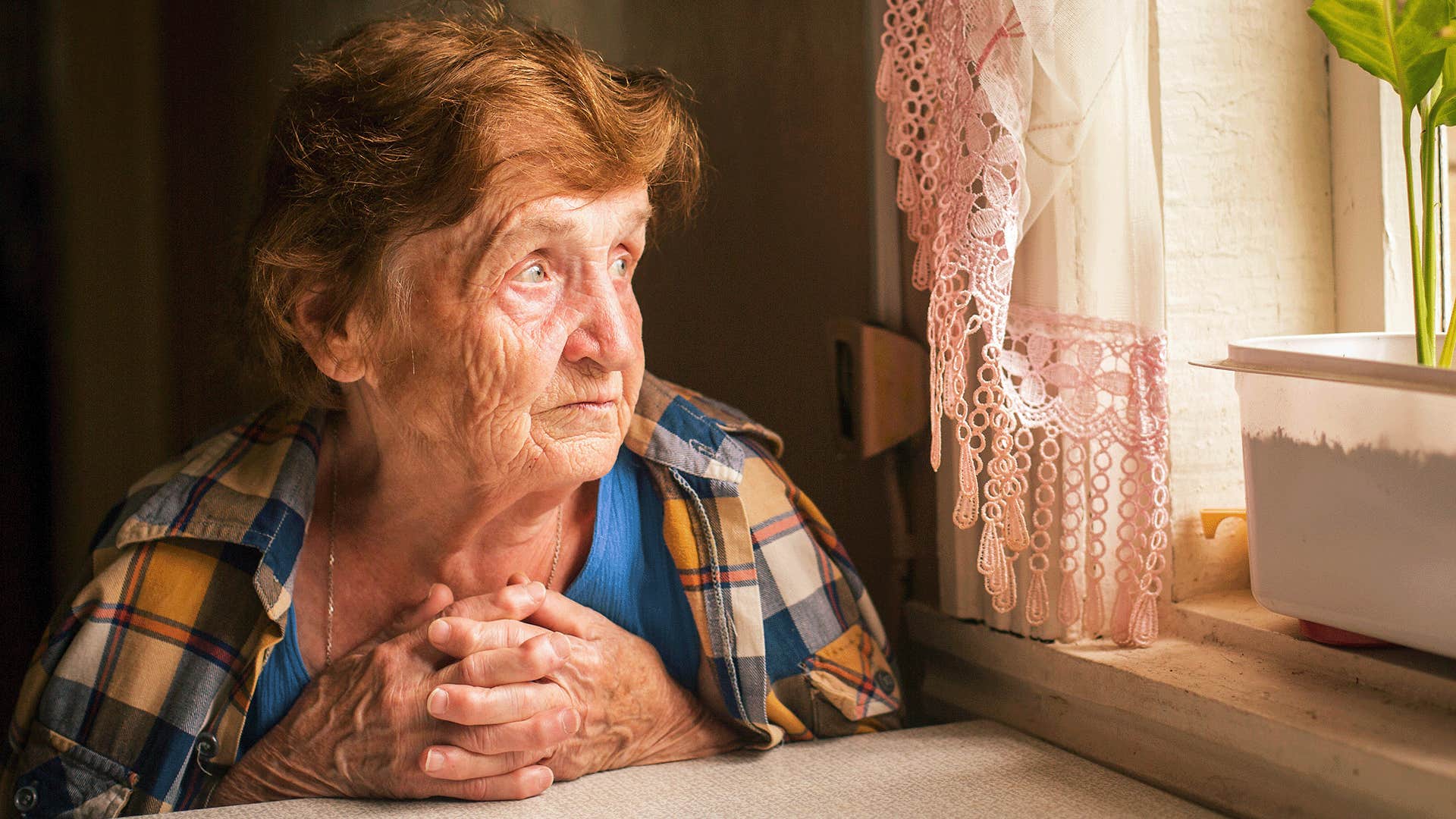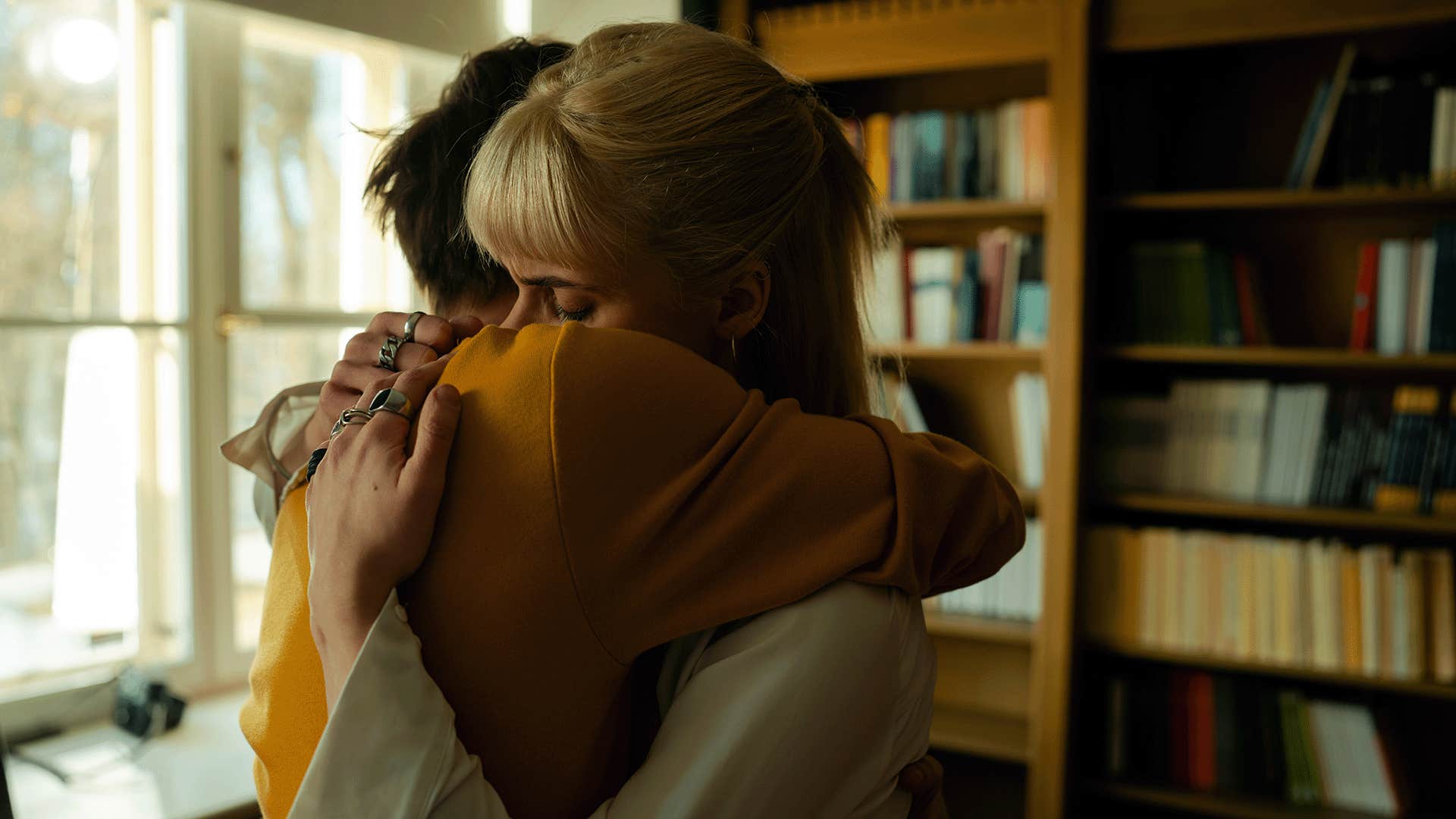7 Regrets People Have Before Dying
What to focus on now, while you still have time.
 De Visu / Shutterstock | Getty Images Signature / xoxo / Adrien_Coquet / siluetstrip / BooBoo Studio / Panacreative Studio | Canva Pro
De Visu / Shutterstock | Getty Images Signature / xoxo / Adrien_Coquet / siluetstrip / BooBoo Studio / Panacreative Studio | Canva Pro GaryVee got it right: The biggest poison in us is regret. But it’s super tricky.
Regret is not an immediate consequence of your actions. You do or don’t do something today, and you’ll end up regretting it years later. This is problematic because it prevents learning from the feedback of your own life.
This is why, to live a regretless life, you have to learn from other people’s lives. You have to closely observe them, and even outright ask them about their regrets so that you can avoid those mistakes. Start doing that for yourself.
Meanwhile, I did it for myself, and I recognized 7 common late-in-life regrets of people around me that I’d like to share with you.
Here are 7 regrets people have before dying:
1.Being overobedient
 NDAB Creativity | Shutterstock
NDAB Creativity | Shutterstock
What I've learned over the years is that if you let them, everyone around you will try to manipulate you. Even, and especially, your parents. Of course, their intention might be good. However, the result rarely is.
Since we were children, we were told to obey our parents and teachers. Not doing so was a mark that you’re not a good kid. Hence, some kids hate disappointing their parents. This is why, they rarely rebel, irrespective of what they want.
However, in the long term, when they’re not satisfied with what their parents planned for them, kids usually start — consciously or subconsciously — resenting their parents for it. This is why I truly believe that it’s better to defy your parents and still love them than to obey them and end up resenting them.
Remember, you owe your parents a lot, but not your whole life. Live the life you want to live, not what your parents want you to live.
2.Missing out on life while running the rat race
 Mariia Korneeva | Shutterstock
Mariia Korneeva | Shutterstock
Some experiences are age-sensitive. For instance, traveling solo for months at a stretch is best if you do it in your 20s when you’re not married and don’t have kids or other responsibilities.
However, if you skip this because you’d rather save that money, or want to focus on your career, or what have you, you might regret it because you’ll never be 25 again.
I’m not saying everyone has to travel solo. That was just an example. The point is some experiences need to be enjoyed at the right time, or else you’ll never have the chance to have them ever.
3.Sacrificing your everyday pleasures because you feel that they’re an insult to your ambition
 Gorodenkoff | Shutterstock
Gorodenkoff | Shutterstock
Making it in today’s world needs a lot of sacrifices. And the idea of sacrifice is celebrated; as it’s a proxy for success, discipline, and focus. However, it may be possible that we’re sacrificing way too much to the point that we’re not ourselves anymore.
I’m in medical school, and eight months ago, I sacrificed my hobbies to study as much as I could. I stopped writing. I stopped playing my ukulele. And one day, I realized that I wasn’t enjoying my life anymore.
This is when I realized it’s important to stay in touch with your hobbies because they make you who you are.
4.Not collecting memories to revisit when you’re old and gray
 rus limon | Shutterstock
rus limon | Shutterstock
There’s a reason people take their album first when their house is on fire. Because memories matter. The good experiences you had in your past are important because they make you feel good today as well. It’s as if these memories give you dividends in the form of happiness.
This is why it’s essential that you start recording your lives. Take more pictures with the people you love. Film them doing stupid things when you’re hanging out together. Buy a Dictaphone and record the great conversations you have with people (with their permission of course).
When you revisit these when you’re old and gray, you’ll be able to access extraordinary joy.
5.Fear of rejection
 Drazen Zigic | Shutterstock
Drazen Zigic | Shutterstock
Most people swallow their feelings about someone due to their fear of being rejected. However, what I’ve learned as a writer is that rejection is not that bad. But refusing to put yourself out there is actually terrible.
If you have feelings for someone; tell them. The worst that will happen is that they might not reciprocate; trust me you can deal with that. But the regret of "what might have been" is too tough to bear.
6.Choosing safety over risk when the risk is not that risky
 De Visu | Shutterstock
De Visu | Shutterstock
We’re hardwired to look for safety. And our society also pushes us towards safety. Safe careers. Stable paychecks. And don’t get me wrong; safety is important as well.
However, when you’re young is exactly when you need to be risk-oriented. Because in case things go south, you have the time, energy, and freedom to get your crap together. When you have your whole life in front of you, no risk is that risky.
7.Not making amends with loved ones
 Stock Unit | Shutterstock
Stock Unit | Shutterstock
My father and one of my uncles didn’t talk to each other. They fought for quite a few years until one day, they gave up on each other.
Then three months ago, my uncle had a huge brain hemorrhage. He landed in a coma. My father took me and he spoke to him in the hospital. He apologized to him, but I doubt that my uncle could hear anything. He died a couple of days later.
I saw my father cry. And it was painful. He cried not only because his brother died; but also because he hadn’t spoken to him in years, despite working in the same office.
Trust me; life’s too short to hate someone. Yes, people are difficult. But so are you. No matter how much friction you have had with someone, don’t cut them off. Limit your interaction with them if you want, but don’t hate someone so much that you cannot even stand them, especially if they’re family.
A very important goal you should have is to minimize the number of regrets you have on your deathbed. To that end, it’s worth knowing about these seven common late-in-life regrets:
- Being extra-obedient to your parents.
- Skipping age-sensitive experiences due to the rat race.
- Sacrificing your hobbies.
- Not taking photos and videos of your lives.
- Not asking that person out.
- Not being-risk oriented when you’re young
- Not being on talking terms with someone who is family.
Akshad Singi, M.D. has been published in Better Humans, Mind Cafe, and more.
